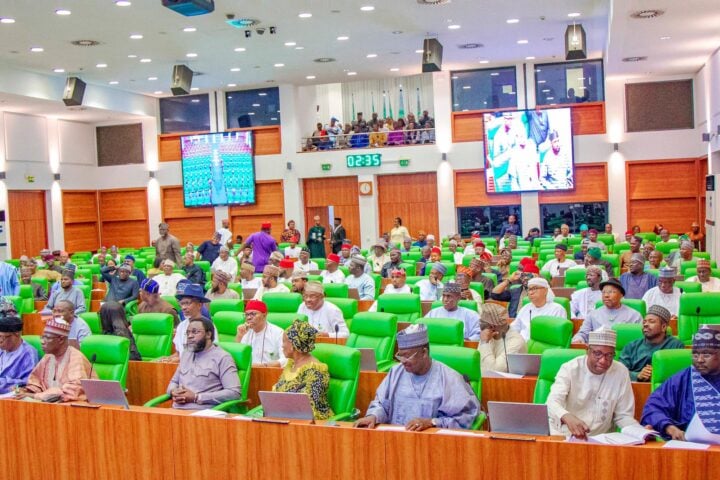The house of representatives has resolved to investigate the “current status” of cryptocurrency, digital assets, and all online peer-to-peer (P2P) marketplace transactions in the country.
This, the lawmakers said, is to identify threats to national security and gaps in the legislative framework.
The green chamber said it will also probe the status of the eNaira on the global cryptocurrency platform to know statutory compliance in creating the digital currency.
The resolution was passed during a plenary session on Tuesday, following the adoption of a motion of urgent public importance sponsored by Isiaka Ibrahim from Ogun state.
Advertisement
Moving the motion, Ibrahim said there is a growing global concern about the national security implications of cryptocurrency transactions through crypto exchanges, including consumer and investor security.
He noted that “these exchanges are said to enable money laundering by criminals and terrorists from and for their illicit activities”.
The lawmaker said the Central Bank of Nigeria (CBN) had raised concerns over the “likelihood” of illicit transactions and money laundering on the cryptocurrency exchanges and their seeming use as an alternative platform for determining local foreign exchange (FX) rates.
Advertisement
‘AN OUTRIGHT BAN NOT BEST’
“The conflict with the government about whether or not the crypto exchanges are determining the local foreign exchange rate and usurping the functions of the national bank does not appear to arise in other developed climes where appropriate statutes and regulations have been enacted and enforced to superintend crypto and other digital asset transactions,” Ibrahim said.
“As is the case in other climes, the government’s close collaboration with Binance and other cryptocurrency exchanges is the best way to elicit their support in tracking, identifying, and facilitating the recovery of illicit and laundered funds on their platforms and assisting with the appreciation of the value of the naira.
“Significant losses of foreign currency inflow to the government’s coffers from the operation of international money transfer operation (IMTO) payment gateway and platforms, utility sharing based platforms etc. that would ordinarily have contributed to the appreciation of the value of the naira have continued to subsist and should be curtailed.
Advertisement
“An outright ban by the government of IMTO’S and others as was reported in the media might not the best cause of action.”
The motion was unanimously adopted when it was put to a voice vote by Benjamin Kalu, the deputy speaker who presided over the plenary.
Following that, the house resolved to investigate the “current status of cryptocurrency, blockchain, digital asset transactions, all the online peer-to-peer (P2P) marketplace, international money transfer operators, payment gateways and platforms, cloud computing, infrastructure (networks), utility sharing based platforms and their practices in Nigeria to identify threats to national security and gaps in legislative framework, statutes, and regulations to the detriment of the country”.
The green chamber also resolved to engage all relevant stakeholders to “initiate necessary processes for establishing required legislation and regulations” for digital assets transactions.
Advertisement
Some cryptocurrency trading platforms, including Binance, are currently under scrutiny by the federal government.
The government had alleged “illegal transactions” by Binance in Nigeria, reportedly seeking retribution of at least $10 billion.
Advertisement
On March 5, Binance announced that all naira transactions on its platform would be suspended from March 8, 2024.
Advertisement
Add a comment






